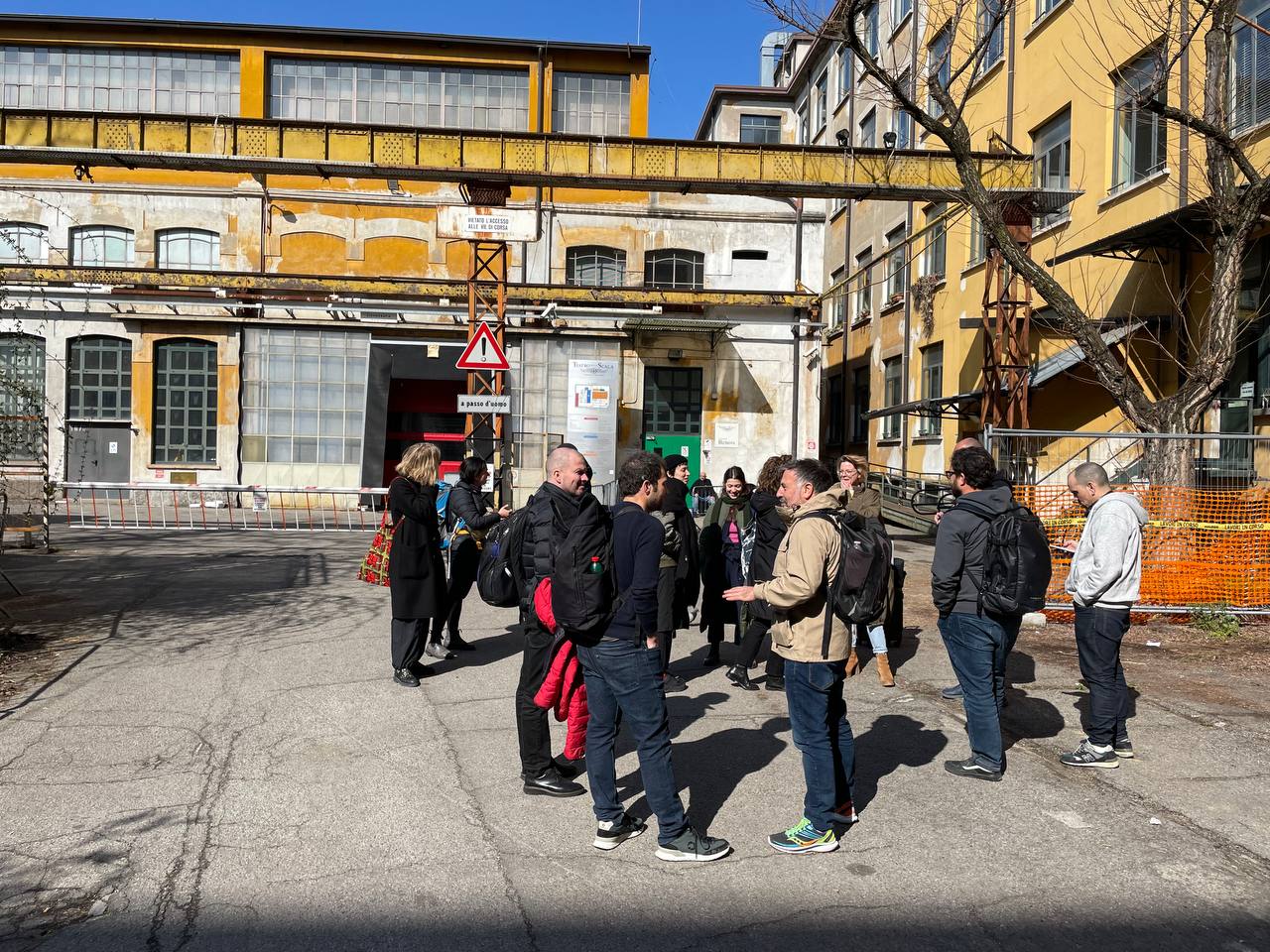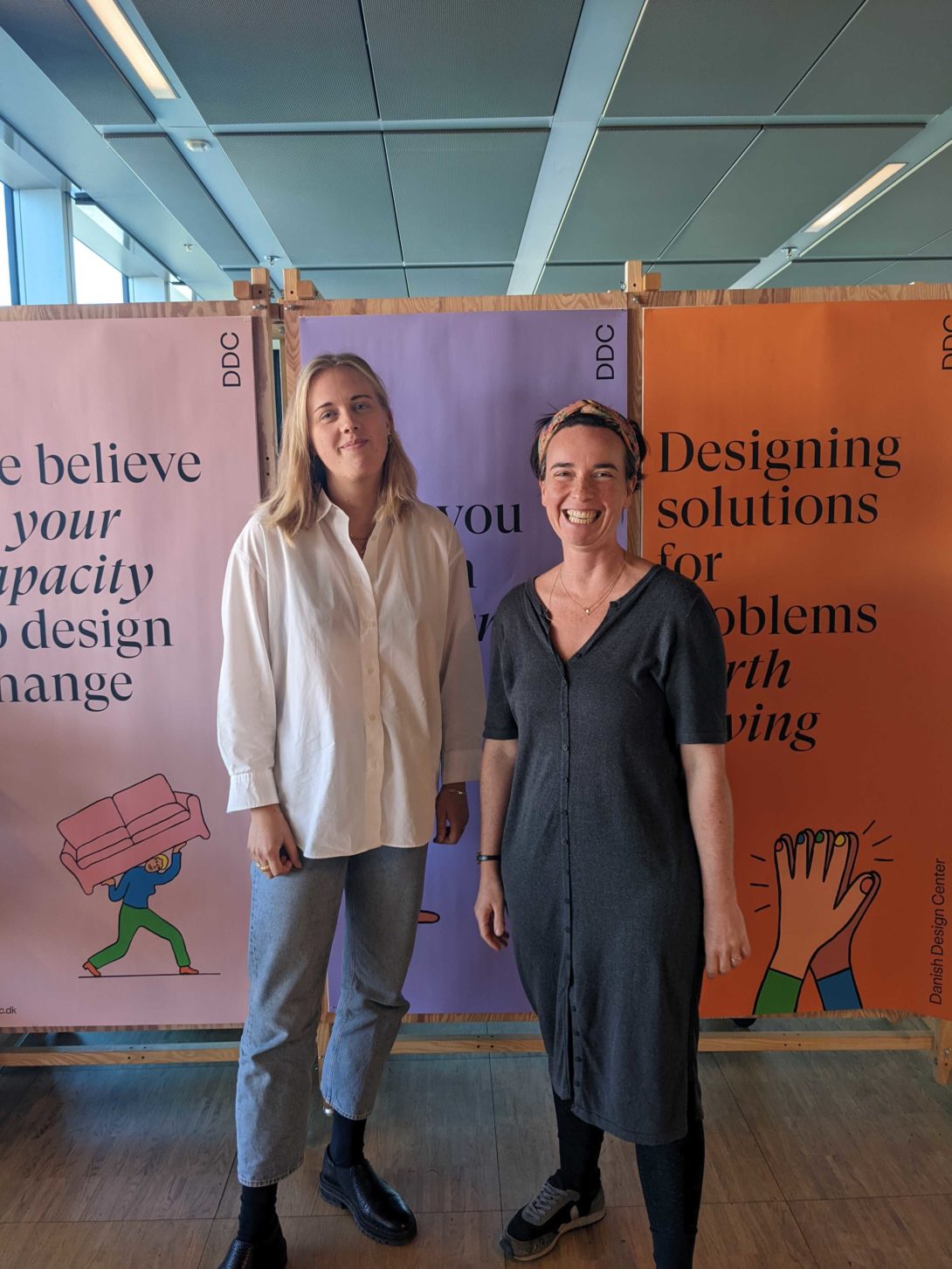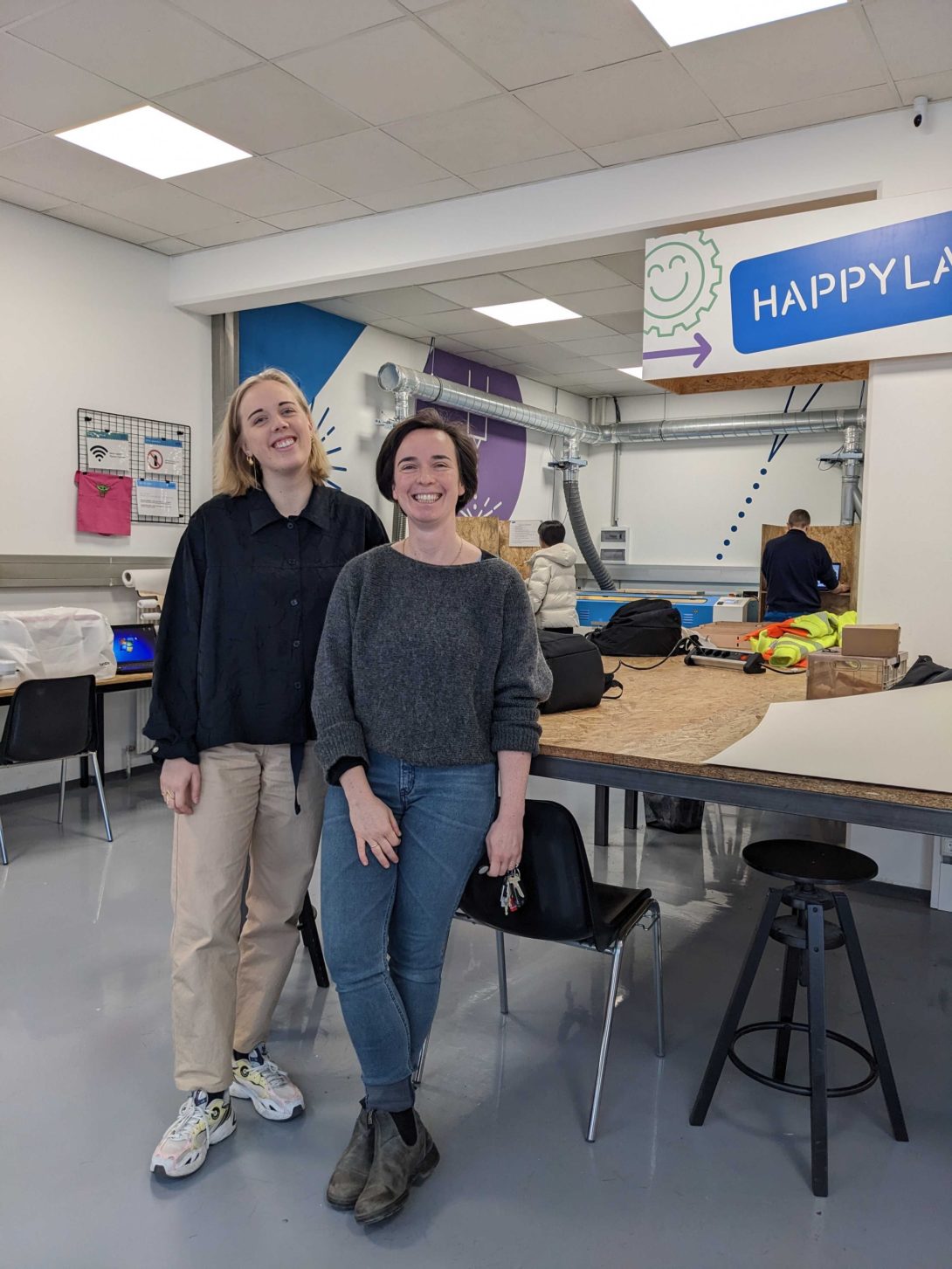- What is the Distributed Design Platform Members Exchange?
The Distributed Design Platform Peer-to-Peer Members Exchange is an initiative that aims to bring together members of the Distributed Design community to collaborate and learn from each other. The objective is to share best practices, network, and learn from each other’s experiences, ultimately contributing to the growth and development of the Distributed Design community.
The program is designed to help strengthen the editorial strategy of the platform and promote internal collaboration. Each year our members come together at the General Assembly to discuss pressing issues, talk about their experiences and share their learnings. These meetings also serve as a moment of networking between the members. Some of our Distributed Design Platform members follow a continuous narrative for the three-year funding cycle, and some others revise their topic each year. This meeting moment serves as an opportunity to elaborate on their reflections, highlight their key interests for the upcoming year, and therefore identify the peers working on the same area of interest.
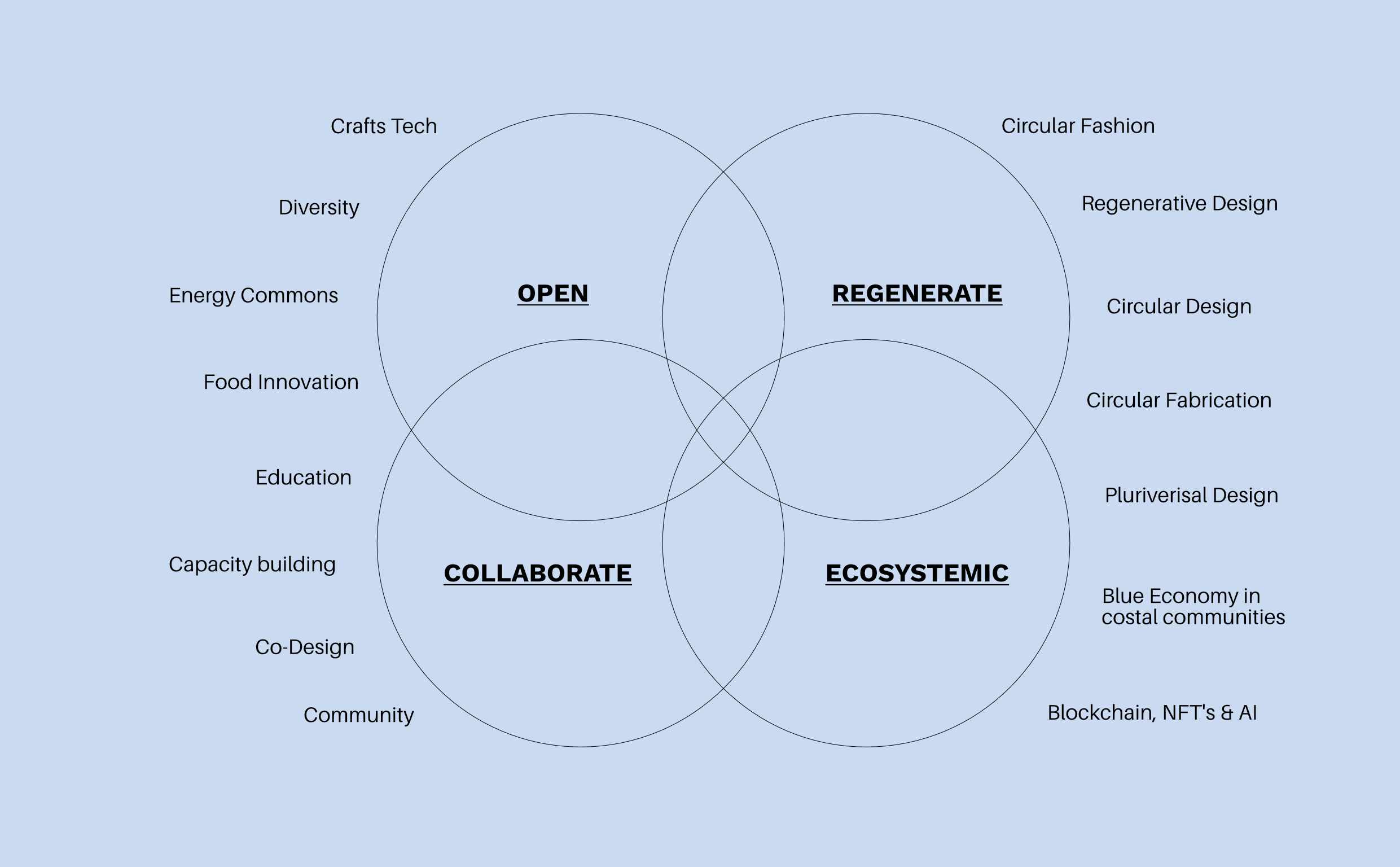
- The Member Exchange in 2022 – 2023
This last year the Distributed Design Platform members exchange concluded in 16 visits, at seven activities, between the members. Following is an overview of the seven exchanges that the members have participated in from April 2022 – March 2023.
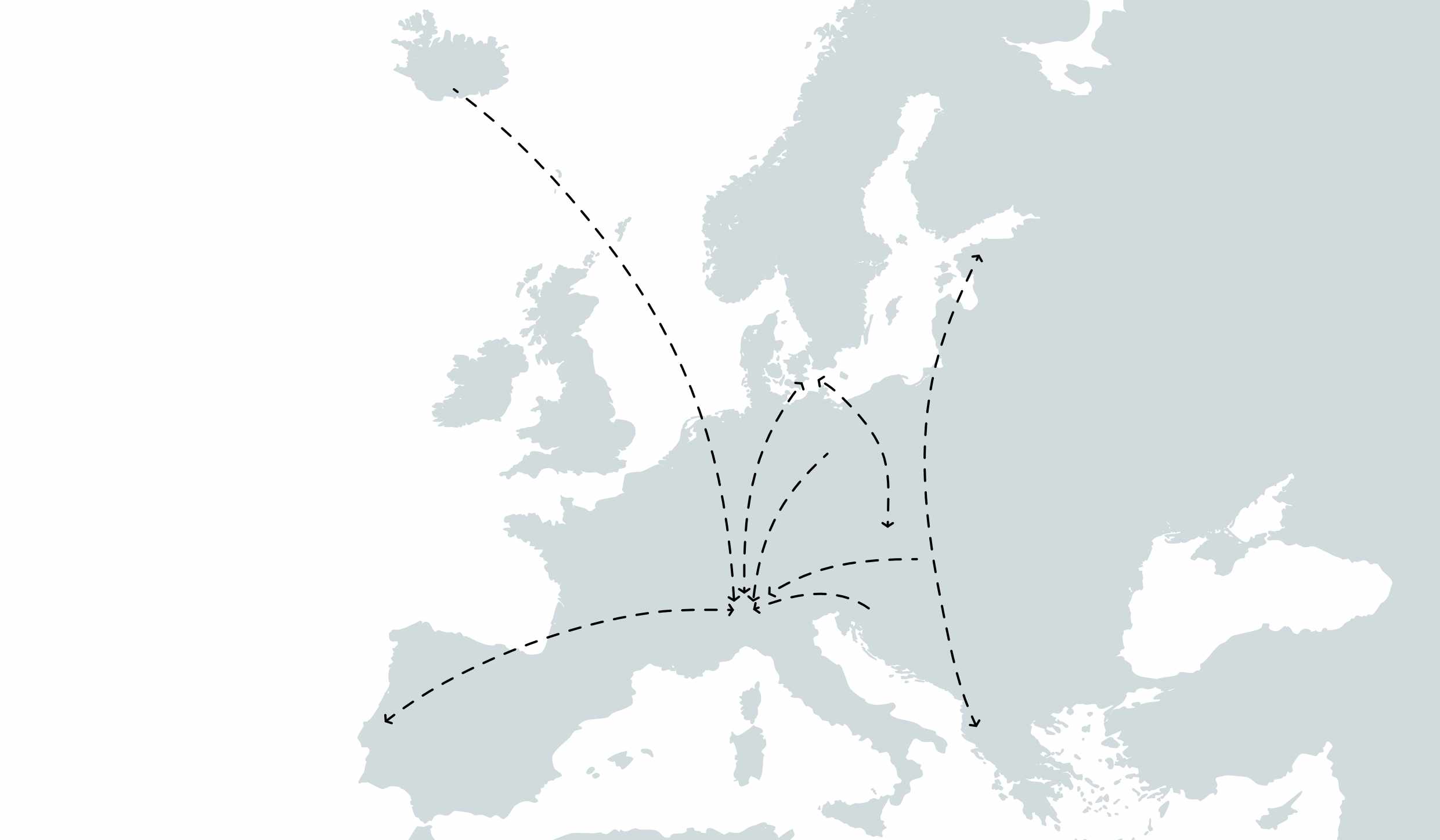
- Technology, society, and the future
Diego Ainse, from the Fab City Foundation, visited the P2P Lab during their first summer school in July 2022, where he exchanged ideas with members and participated in lectures and workshops focused on technology, society, and the future. The exchange allowed for valuable cross-collaboration and sharing of knowledge between the two organizations. Additionally, he attended the Summer School lecture and “Craft as a commons” workshop which provided attendees with insights into the meaning of technology and alternative trajectories of techno-social development, as well as traditional tar production technology and its implications for the commons.
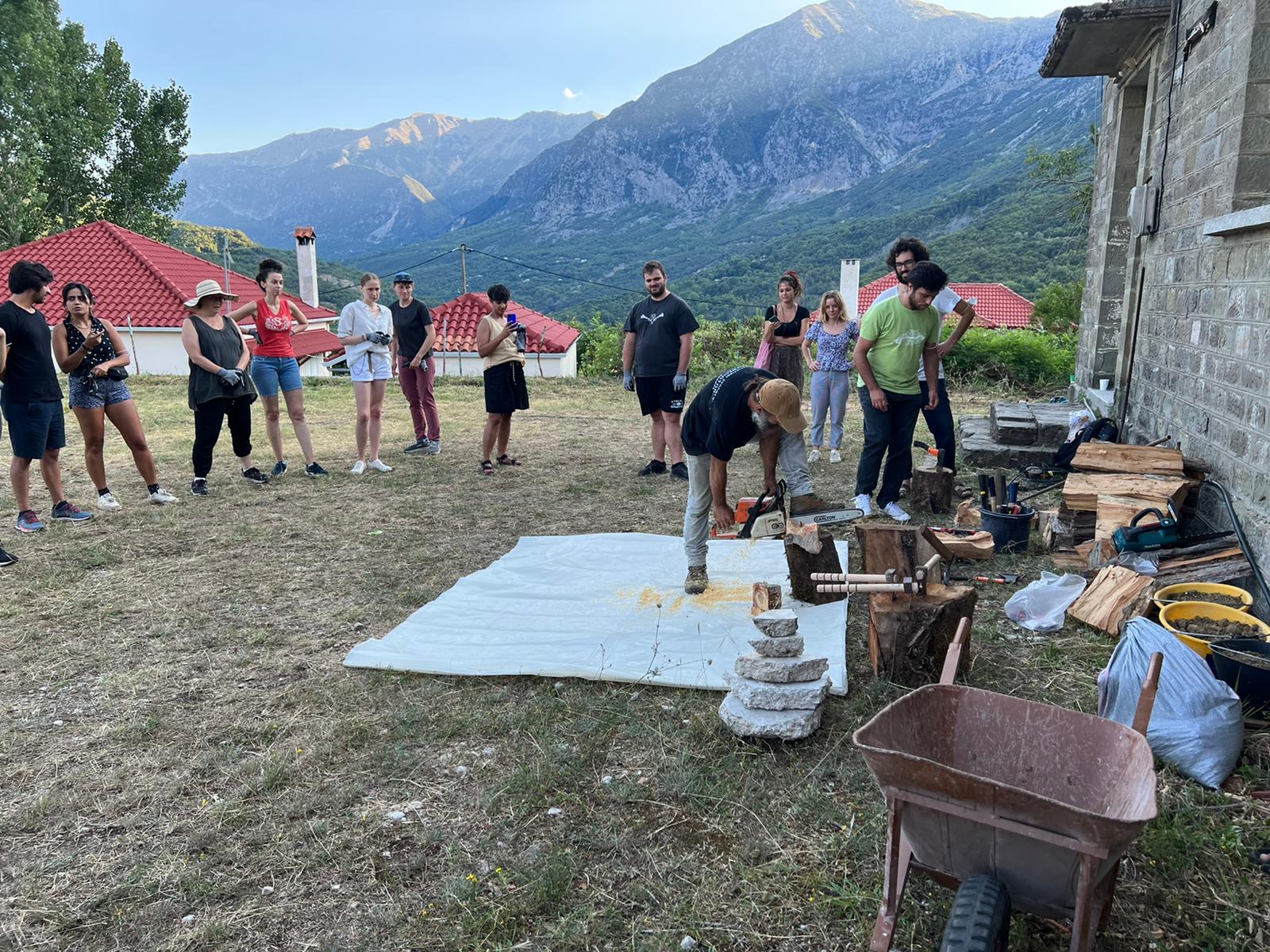
- Happy Lab Vienna, GIG and the Danish Design Centre
During a visit to Copenhagen, Joanna Kowollik, the project coordinator of Happy Lab Vienna, participated in a workshop on the circular translation developed by Therese Balslev, followed by a brainstorming session on how it could be implemented into their Makerspace.
Therese Balslev, a representative of the Danish Design Center, visited Happy Lab Vienna to carry out a design-driven workshop focused on circular mindsets in a distributed design context for makerspaces. During her visit, she gained insights into Happy Lab Vienna’s projects and procedures and explored potential collaborations.
Fadia from Global Innovation Gathering, has attended the workshop by Therese at Happy Lab Vienna, featuring the “Circularity Wheel”. The tool by DDC to measure and apply circularity in makerspace processes and activities has gained interest from GIG and they are currently exploring the possibility of testing the tool with members in an online workshop.
“We found it an incredible tool to be tested in the context of makerspace outside of Europe” Fadia
This initial collaboration is being transformed into a second iteration, this year DDC and Happy Lab Vienna will closely work together to further investigate circularity in makerspaces. Other Distributed Design Paltform members are curious about how this tool can be implemented in their respective makerspaces, and are waiting potentially until it’s officially published and open to use.
“In my opinion, I think that providing such input to our makers can be really helpful in introducing them to the idea of eco-design, which means designing products that are environmentally friendly at every stage of their life. This can result in more sustainable and long-lasting products being created at the makerspace.” Joanna
- Kopli 93
Kopli93 is a former industrial building in Tallinn, Estonia, that has been converted into a community-led makerspace and cultural center. The space hosts various activities, including workshops, events, and exhibitions, and aims to promote creativity, innovation, and sustainable practices. It is part of the global Fab Lab network and collaborates with other makerspaces and organizations to develop new projects and initiatives.
During March 1-10, 2023, Christina Priavolou from P2P Lab visited Tallinn for the inter-member exchange with the Fab City Foundation where she participated in various local workshops (A link to a short video about the Windturbine at Kopli 93 workshop can be found here). The discussions revolved around exchanging experiences from open-source wind turbine workshops and transitioning Kopli 93 and Tzoumakers into fully integrated parts of the local community.
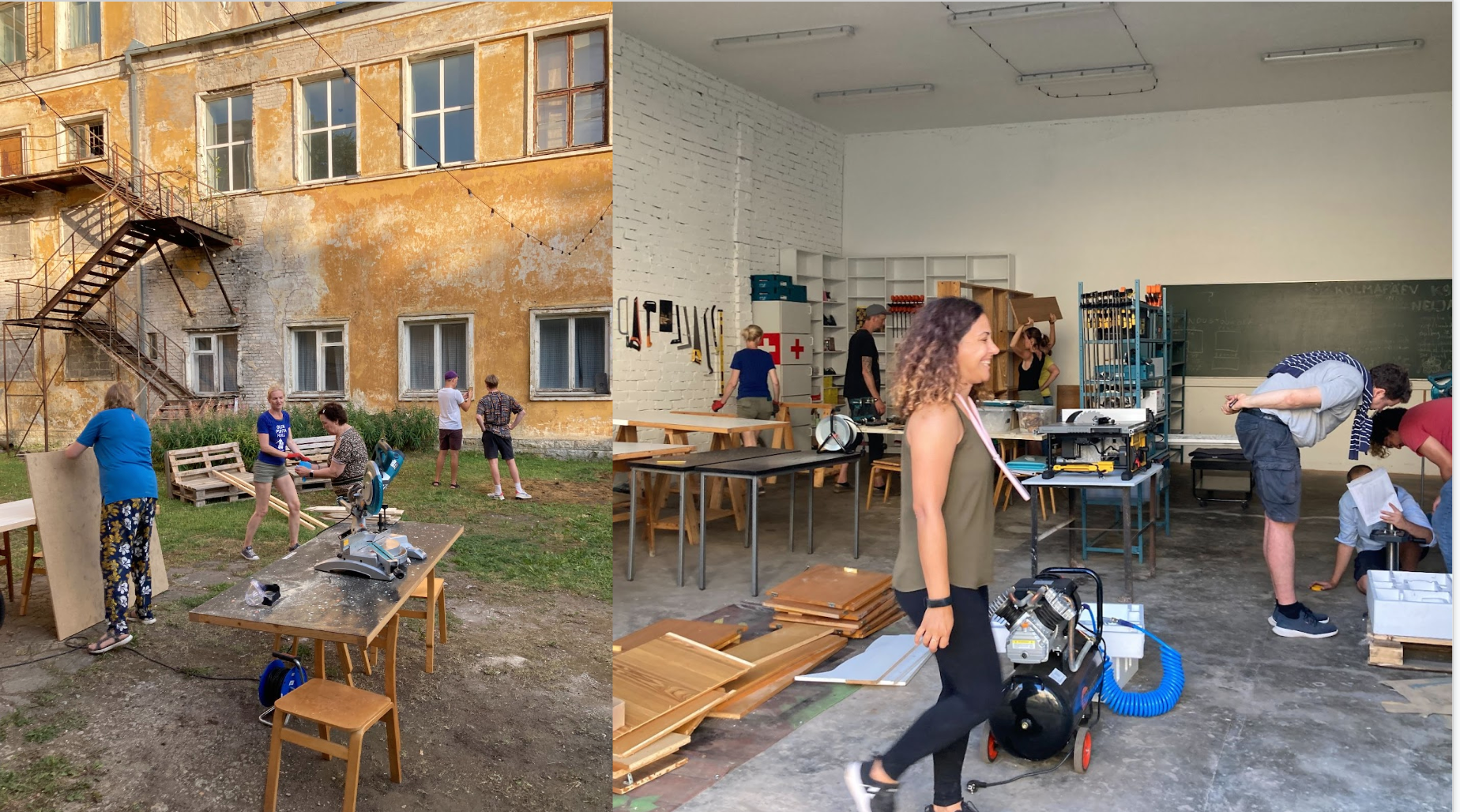
- Visiting the Danish Design Centre
During this year several members from the Distributed Design Platform were interested in visiting the Danish Design Centre. Both Sara de Boer from Pakhuis de Zwijger and Federica Mandelli from Open Dot, have used the opportunity of the members exchange to visit DDC at their headquarters in Copenhagen. The team from DDC has offered a variety of visits and activities for both to attend to.
“They envision the future we want to have which is neither a dystopia nor a utopia, but a preferred one. Danish Design Centre is a pioneer in a sense that they try to change the current narrative.” Sara
- Making Fashion Last!
The “Making Fashion Last!” event took place on March 3rd and 4th in Milan. The program included a conference on the durability of fashion and a co-design table with a lesson on digital fabrication technologies applied to the fashion industry.
Asger Nørregård Rasmussen from Maker Copenhagen, Frosti Gíslason from the Knowledge Centre Iceland, Anja Zorko from MAO, André Rocha from the Politécinco de Lisboa, and David Pap from Fab Lab Budapest attended the Making Fashion Last! Event by Open Dot.
“Visiting Open Dot Lab and BASE was a great source of inspiration, especially considering that Maker will soon open a new, larger workshop facility.” Asger Nørregård Rasmussen
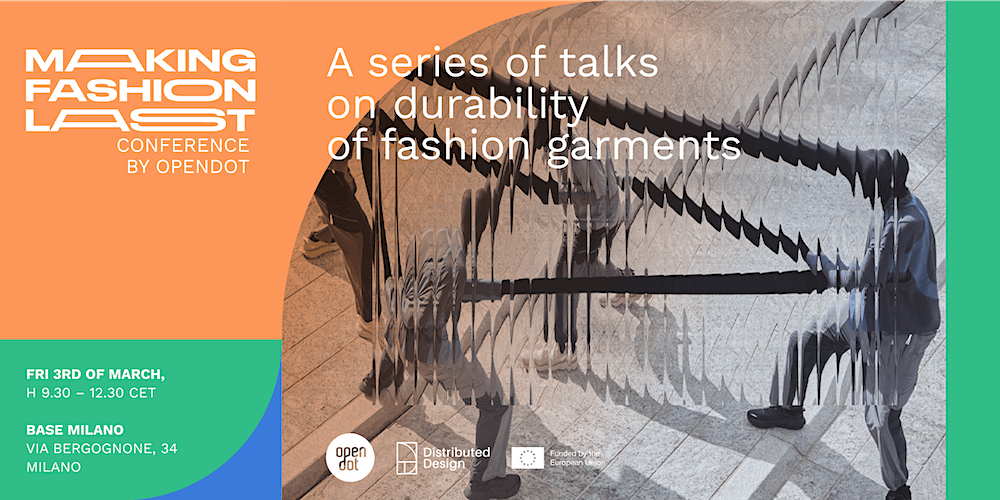
- Fab Lab Benefica at Politécnico de Lisboa and Polifactory Politecnico di Milano
On 3 March 2023, Andrè Rocha, Lab Manager at Politecnico de Lisboa, visited Polifactory in Milan to explore the relationship between making, Fab Labs, and the didactic system in the field of design. Then on 24 March, Massimo Bianchini, Lab Manager at Polifactory, visited the Fab Lab of Politécnico de Lisboa to understand their role in developing projects on the makers scene and food system in Lisbon, Portugal. The two makerspaces belonging to two Polytechnic universities are keen on exploring potential areas of experimentation for distributed design and sharing knowledge on capacity to operate transdisciplinary in their urban contexts, as well as models of working with young creative talents.
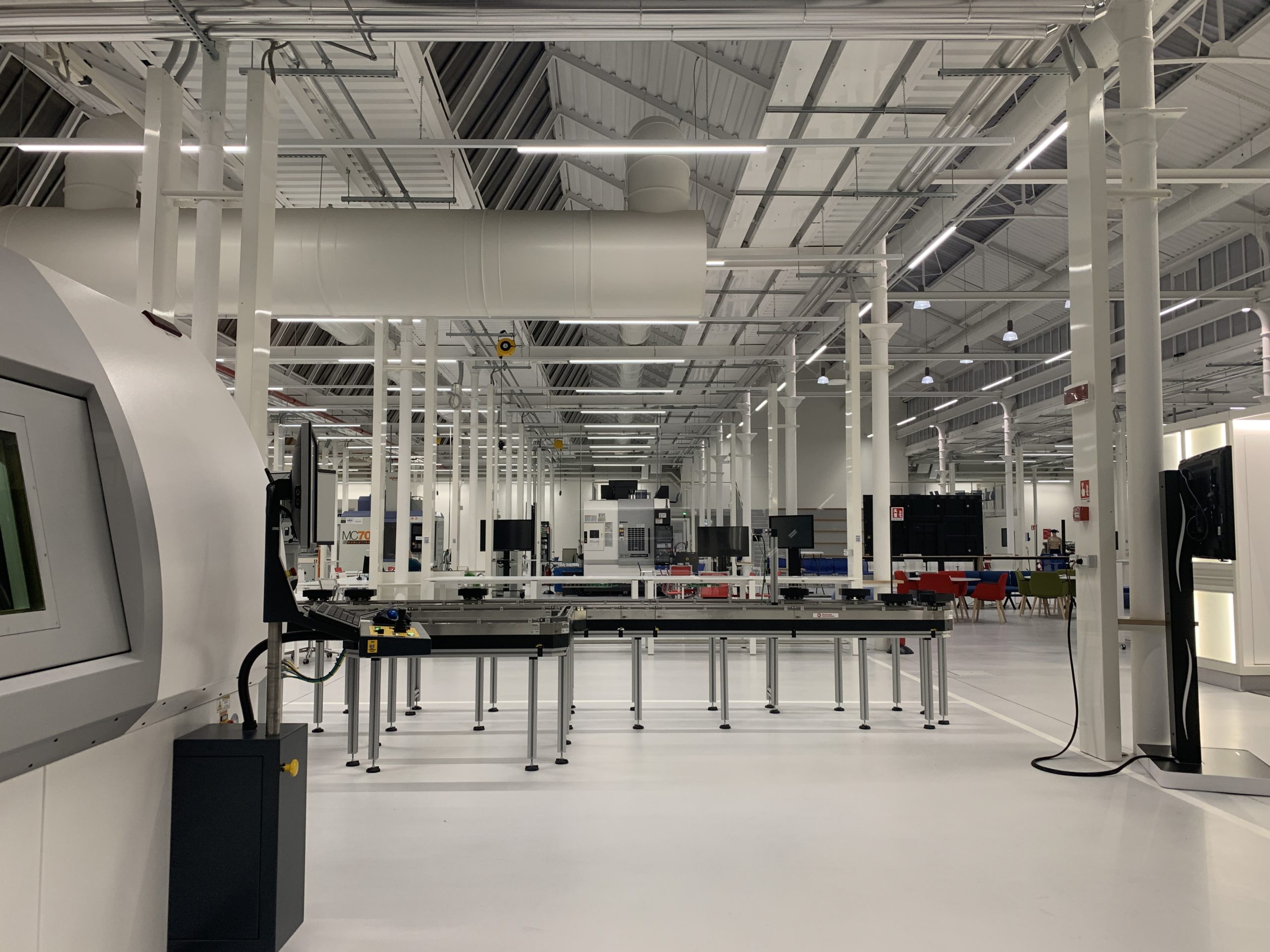
- What are our reflections so far?
In general, we are very happy with how the Member Exchange Program. However, there is always space for improvement. And while we are still reflecting on what we can do better this year, here are some reflections on the benefits of Member Exchange for the Distributed Design community:
- Promoting collaboration and networking: By connecting members with each other, they can share knowledge, resources, and expertise, which can lead to new collaborations and networking opportunities.
- Encouraging participation: Member exchange programs can encourage participation and engagement within the community, as members are incentivized to share their skills and resources with others.
- Fostering a sense of community: The exchange program can help build a sense of community within the group, as members are encouraged to interact and support each other.
- Enhancing learning and development: Members can learn new skills and gain valuable experience through participating in the exchange program, which can enhance their personal and professional development.
Overall, the members exchange program can help strengthen a community by fostering collaboration, participation, and learning, while also providing access to valuable resources and building a sense of community.
- What’s coming this year?
This year we will have our second iteration of the Distributed Design Platform Member Exchange program. We are currently collectively working on the curation of this year’s agenda. You will see all the highlights via our social media channels.
Instagram | LinkedIn | Facebook
Don’t worry, we don’t only offer exchange programs for our members! Sign up through this form if you are a Creative Talent and would like to participate in the Creative Talent Mobility Exchange this year!
